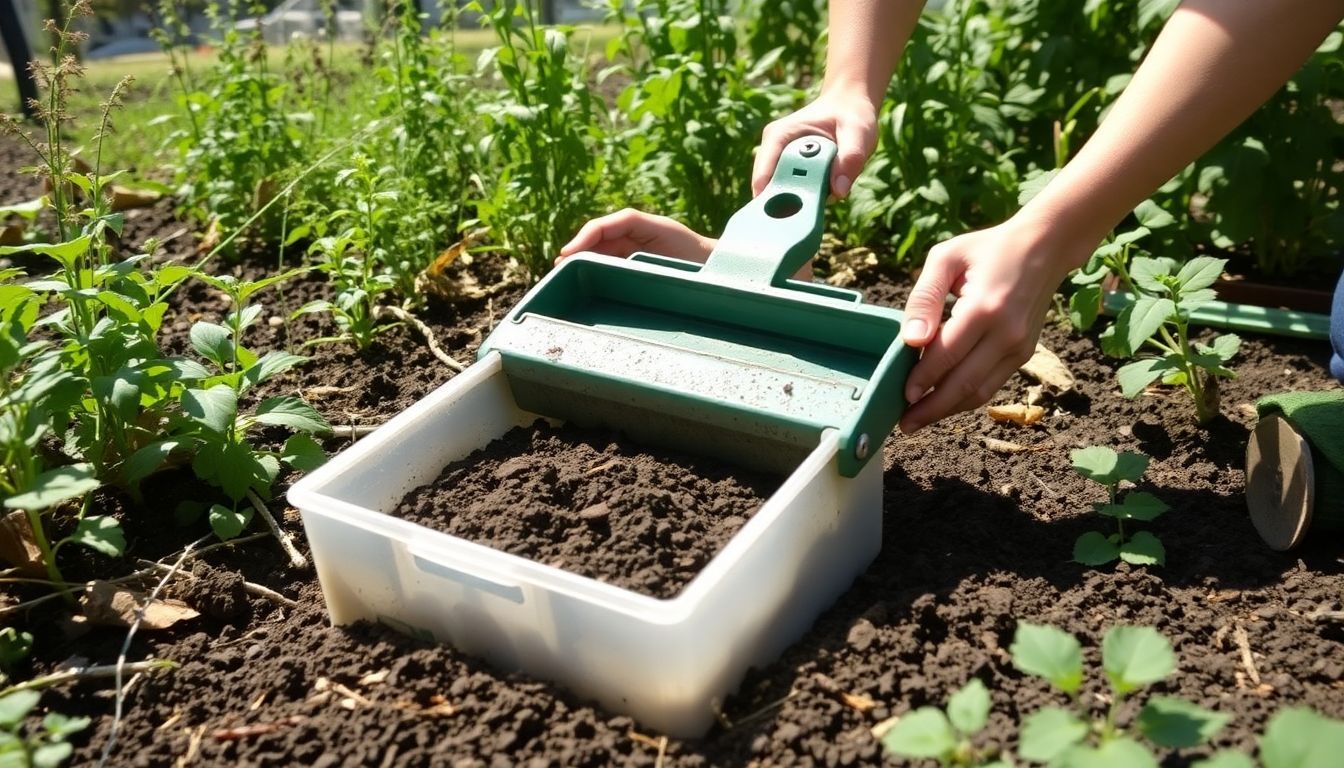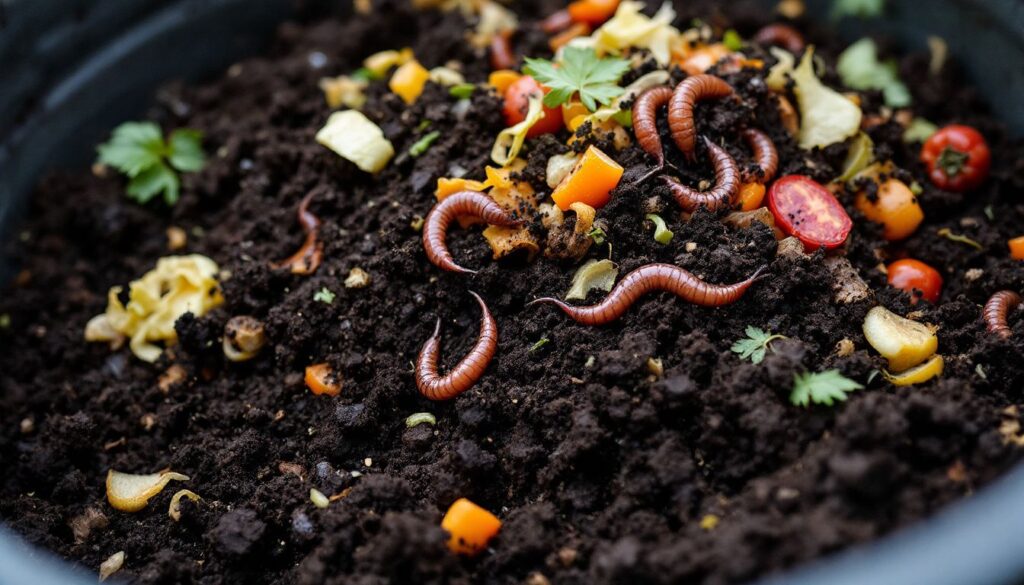Starting a worm farm can seem challenging when you’re not quite sure what tools you need. We struggled with this very challenge when we began our worm farming adventure, and found that proper vermicompost equipment makes all the difference in success rates.
This handy guide will show you the must-have tools for both small home bins and larger systems. Red Wiggler worms can process up to half their weight in food scraps daily with the right setup! Quite remarkable, isn’t it!
Overview of Vermicomposting Equipment

Let’s look at the tools that make worm farming easy and helpful. Good tools turn hard work into fun.
The right tools boost how much worm compost you can make. Our Turbo Sift is the best hand-powered compost sifter for small farms and pros. This tool sifts soil, compost, worm castings, worms, and eggs with no fuss.
We also sell the Wormgear CFT system that grows as you need more space. This system helps you make more compost without starting over.
“Good worm farming tools don’t just save time—they make your work count more.”
All our tools come with clear guides to help you start fast. We’re here to answer your questions after you buy. From simple soil sifters to full worm farming systems, we have tools for both new and skilled worm farmers.
Essential Tools for Small-Scale Vermicomposting
Now that we’ve covered the basic equipment needed for vermicomposting, let’s focus on the specific tools for small-scale operations. These essential items will help you create a thriving worm farm right in your home or garden.
- Worm Bin – A plastic container with drainage holes serves as the perfect home for your composting worms.
- Red Wigglers – These worms are the most effective and resilient for composting, available from Uncle Jim’s Worm Farm at $64.95 for 2000 worms.
- European Night Crawlers – These larger worms cost $49.95 for 500 and work well in slightly deeper bins.
- Bedding Material – Shredded newspaper, cardboard, or coconut coir gives worms a cosy place to live.
- Kitchen Scraps Container – A small bin with a lid keeps food waste until you’re ready to feed your worms.
- Hand Fork – This tool helps you turn and aerate the compost without harming the worms.
- Spray Bottle – Misting your worm bin keeps the bedding moist but not soggy.
- Thermometer – Checking the temperature ensures your worm farm stays between 13-25°C.
- Manual Compost Sifter – The Turbo Sift is a top choice for screening finished vermicastings from worms.
- Harvest Tray – This makes collecting your high-quality vermicastings easier and less messy.
- Scale – Weighing food scraps helps track how much organic waste you’re upcycling.
- Gloves – Garden gloves protect your hands while working with your worm farm.
Advanced Equipment for Commercial Vermicomposting
While small-scale vermicomposting works well for homes and gardens, commercial operations need more advanced systems. We want to share the top equipment options that make large-scale worm composting both efficient and profitable.
- Wormgear CFT Systems feature modular designs that grow with your business needs and boost productivity rates significantly.
- No-till vermicomposting equipment keeps worms and helpful microbes happy by not disturbing their habitat, much like no-till farming practices.
- Automated feeding systems deliver precise amounts of organic waste to your worm beds on set schedules without manual labor.
- Screening and harvesting machines separate worms from finished compost quickly, saving hours of hand sorting.
- Climate control systems maintain ideal temperatures and moisture levels for year-round production regardless of outside weather.
- Moisture monitors track water content in beds to prevent drowning or drying out your worm population.
- Continuous flow through (CFT) systems allow waste to enter at the top while finished compost exits at the bottom for non-stop production.
- Aeration equipment pumps oxygen through large beds to speed up microbial breakdown and prevent bad smells.
- Commercial-grade worm bins hold tons of material rather than pounds, with reinforced sides to handle the weight.
- Input-to-product cycle trackers help measure how fast your system turns waste into usable vermicompost.
Conclusion
The right tools make worm farming easy and fun. From basic bins to fancy systems, good gear helps your worms thrive. Small items like moisture meters and feeding tools boost your success with less work.
Big farms need bigger tools, but the payoff comes in better compost and happy worms. Your perfect setup waits – grab those tools and watch your garden grow with rich worm castings!




